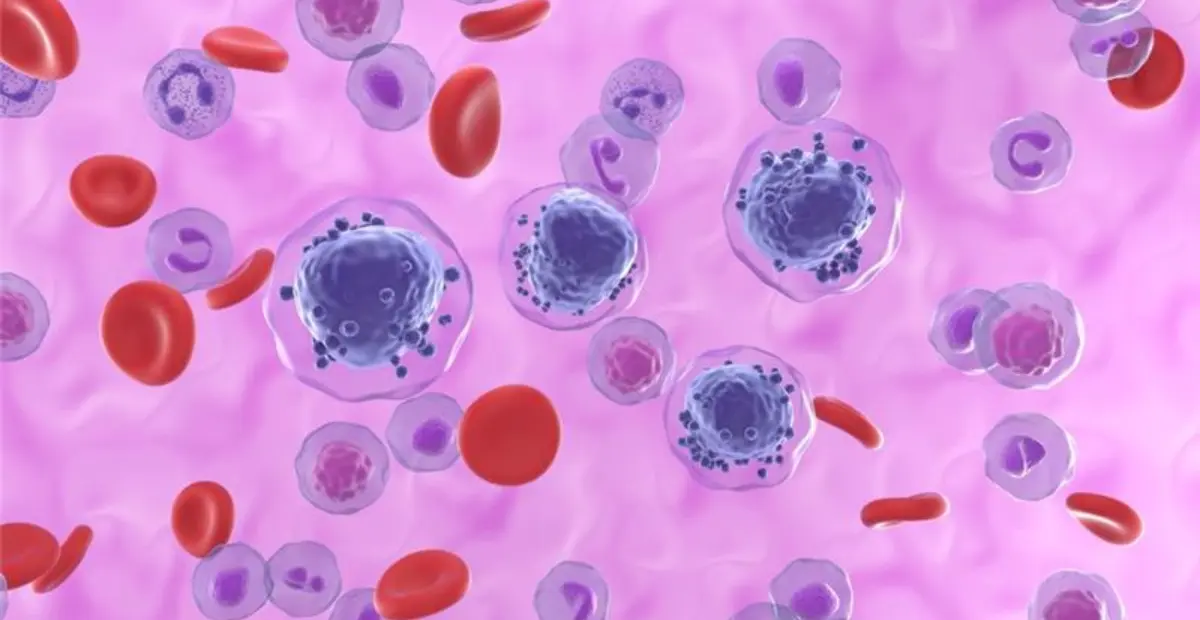Acute Myeloid Leukemia (AML) vs Acute Lymphoblastic Leukemia (ALL): Symptoms, Diagnosis & Treatment
Acute Myeloid Leukemia (AML) and Acute Lymphoblastic Leukemia (ALL) are aggressive blood cancers that impair the body’s ability to produce healthy cells. These acute leukemias are relentless in their progression without intervention. While both stem from the bone marrow, they diverge in the blood cells they engage, their clinical features, and their management approaches. Recognizing these distinctions is essential for proper and prompt intervention.
ACUTE MYELOID LEUKEMIA (AML):
It is a type of cancer of the blood associated with excessive production of immature white blood cells (WBC) from the bone marrow, and they interfere with the production of other cells, like Red blood Cells, Platelets, which results in abnormal production of all the blood cells.
Risk Factors:
- Males are more prone
- Smoking
- Getting older
- Chemotherapy and Radiotherapy
- Genetic disorders like Down’s Syndrome
- A mutation in bone marrow cells
Symptoms of AML:
- Fatigue and weakness
- Frequent infections
- Easy bruising or bleeding
- Bone and joint pain
- Pale skin
ACUTE LYMPHOBLASTIC LEUKEMIA (ALL):
ALL is a cancer of the lymphoid line of blood cells. It starts when the bone marrow produces too many immature lymphocytes (a type of white blood cell). It happens when a bone marrow cell develops an error in its DNA. It is the most common type of cancer in children and has a good prognosis
Causes and Risk Factors:
- Family history of leukemia
- Genetic abnormalities like Down’s Syndrome
- Exposure to radiation
- Certain viral infections ( EBV, Hepatitis C, and HHV-8)
Symptoms of ALL:
- Persistent fever
- Lymphadenopathy
- Sudden weight loss
- Frequent nosebleeds and gum bleeding
- Night sweats.
Diagnosis of AML & ALL:
Diagnosis involves a series of tests to confirm the type of leukemia:
- Complete Blood Count (CBC): Shows abnormal white blood cell counts.
- Bone Marrow Biopsy: Detects blast cells and determines lineage (myeloid vs lymphoid).
- Cytogenetic & Molecular Testing: Identifies mutations such as FLT3 in AML or BCR-ABL in ALL.
- Immunophenotyping: Helps distinguish AML from ALL using cell markers.
Treatment Options:
For AML:
Intensive chemotherapy:
- Standard induction: Cytarabine + anthracycline (e.g., daunorubicin or idarubicin).
Targeted therapies (based on genetic mutations):
- Midostaurin → for FLT3-mutated AML (used with chemo).
- Gilteritinib → for relapsed/refractory FLT3-mutated AML.
- Enasidenib → for IDH2-mutated AML.
- Ivosidenib → for IDH1-mutated AML.
- Venetoclax (BCL-2 inhibitor) → often combined with azacitidine, decitabine, or low-dose cytarabine, especially in older/unfit patients.
Stem cell transplantation (Allogeneic HSCT):
- Recommended in high-risk or relapsed cases for curative potential.
For ALL:
Multi-drug chemotherapy protocols:
- Induction, consolidation, and maintenance phases (commonly use vincristine, corticosteroids, anthracyclines, asparaginase, etc.).
Targeted therapies:
- Blinatumomab (BiTE) → for relapsed/refractory B-cell precursor ALL.
- Inotuzumab ozogamicin → anti-CD22 antibody-drug conjugate, used in relapsed/refractory B-cell ALL.
- Tyrosine kinase inhibitors (TKIs) → imatinib, dasatinib, ponatinib for Philadelphia chromosome-positive (Ph+) ALL.
Cell therapies:
- CAR-T cell therapy (e.g., tisagenlecleucel, brexucabtagene autoleucel) → for relapsed/refractory B-cell ALL, especially in children and young adults.
Stem cell transplantation (Allogeneic HSCT):
- Considered in high-risk or relapsed cases after remission.
How to get these Medicines in India?
Patients in India can access these medicines under Named Patient Programs (NPPs), which allow the import of life-saving drugs not yet approved or marketed locally. The process includes:
- A valid prescription from the treating oncologist
- Submission of required documents to CDSCO (India’s regulatory authority)
- Coordination with a licensed importer
Role of THE INDIAN PHARMA (TIP) in Accessing AML & ALL Drugs:
THE INDIAN PHARMA (TIP) Network (IPN) specializes in sourcing and supplying hard-to-access medicines. For AML and ALL patients in India through
- Global sourcing of targeted therapies and immunotherapies
- Regulatory compliance with CDSCO guidelines
- Cold chain logistics for biologics and specialty drugs
- Timely delivery to hospitals and patients across India
Frequently Asked Questions (FAQs):
Is Venetoclax (Venclexta) available in India?
Venetoclax is not commercially available in India for AML. Patients can legally access it through the Named Patient Import Program with the help of licensed importers.
Can Blinatumomab (Blincyto) be imported legally in India?
Yes. Patients with relapsed/refractory ALL can import Blincyto legally under a patient-specific license issued by CDSCO.
What about CAR-T therapy for ALL in India?
CAR-T cell therapies like Kymriah are not yet approved in India. Patients may either travel abroad for treatment or import under special access programs with regulatory approvals.
How can a patient access Midostaurin (Rydapt) in India?
Midostaurin for FLT3-mutated AML is available only through special access pathways. A valid oncologist prescription and CDSCO clearance are required.
Who helps with the import process?
Ikris Pharma Network is one of the leading and compliant importers that supports hospitals and oncologists in India with the legal procurement of these drugs through the Named Patient Program (NPP).
Conclusion:
Acute Myeloid Leukemia (AML) and Acute Lymphoblastic Leukemia (ALL) are fast-progressing forms of leukemia that require urgent diagnosis and treatment. Early detection, targeted therapies, and ongoing medical research offer hope for better survival rates.
Innovative therapies such as Midostaurin, Venetoclax, Blinatumomab, and CAR-T treatments are transforming outcomes in AML and ALL worldwide. In India, where these drugs are not readily available, trusted import partners like THE INDIAN PHARMA (TIP) ensure safe, legal, and timely access for patients in need.


